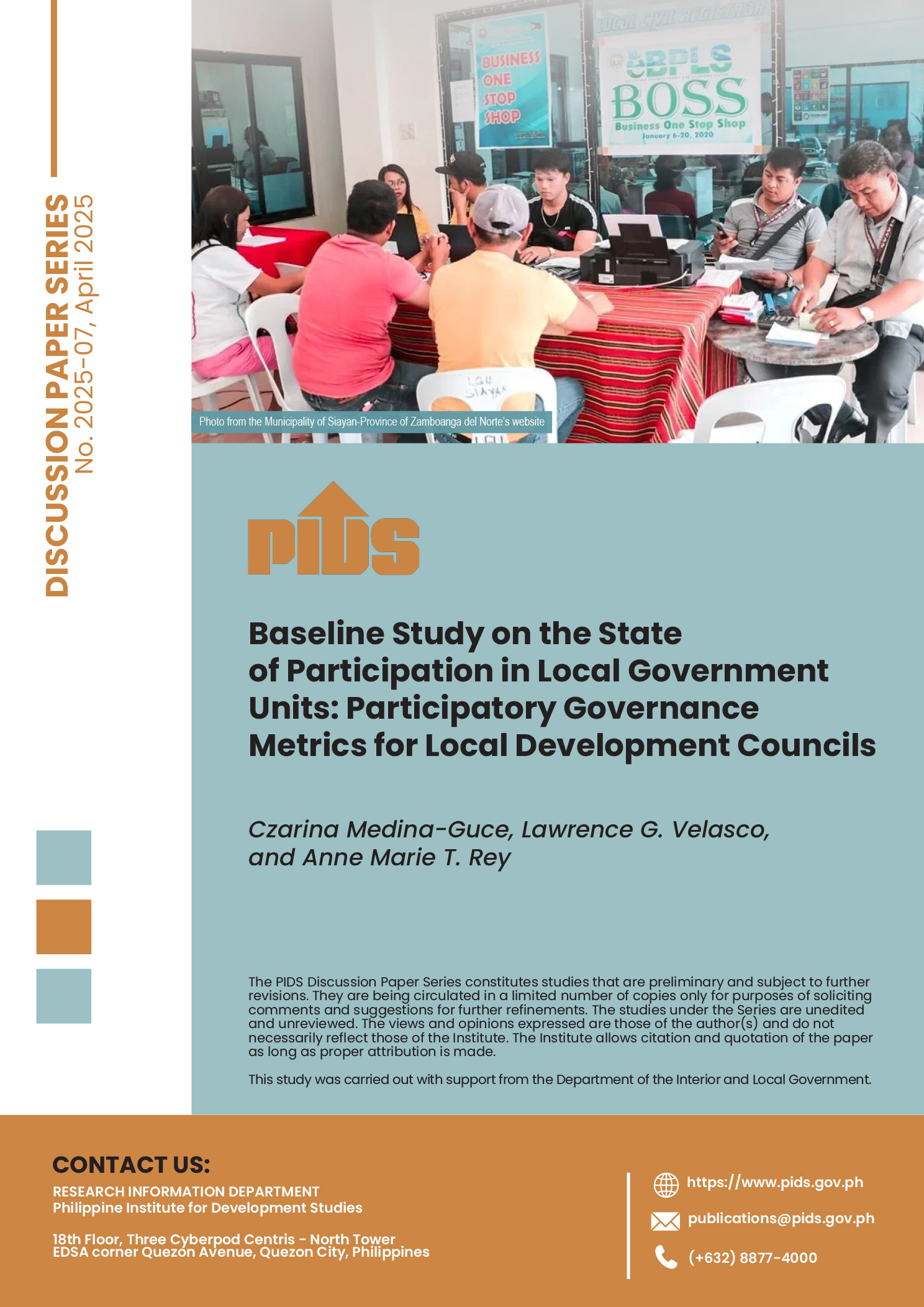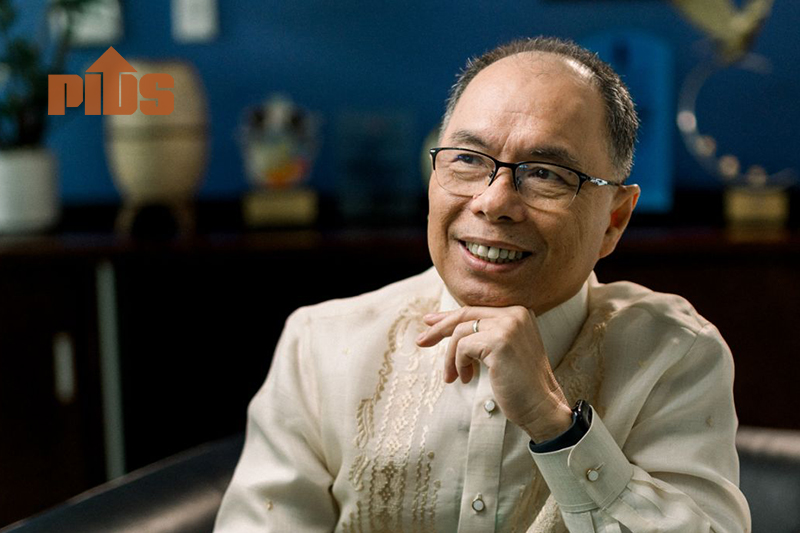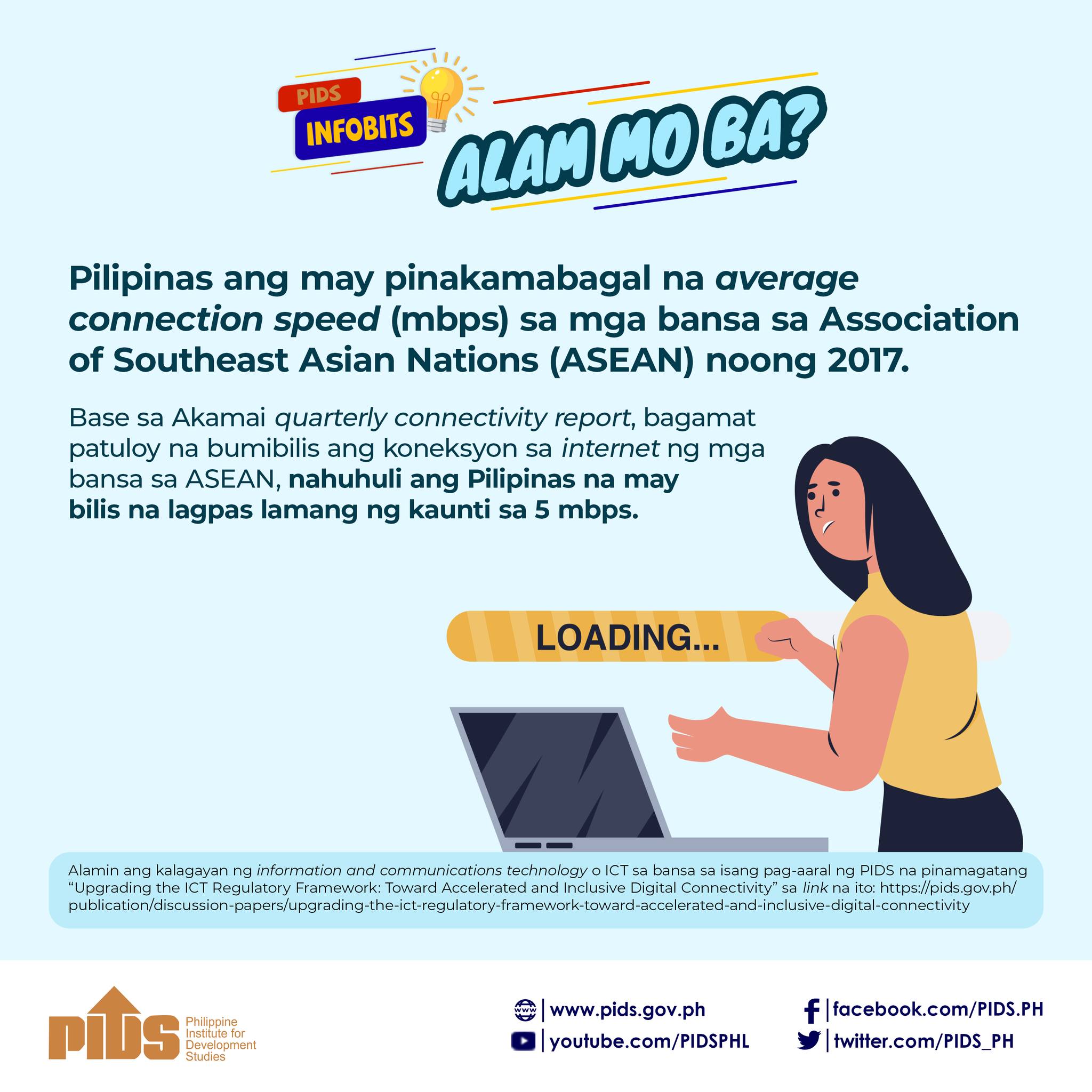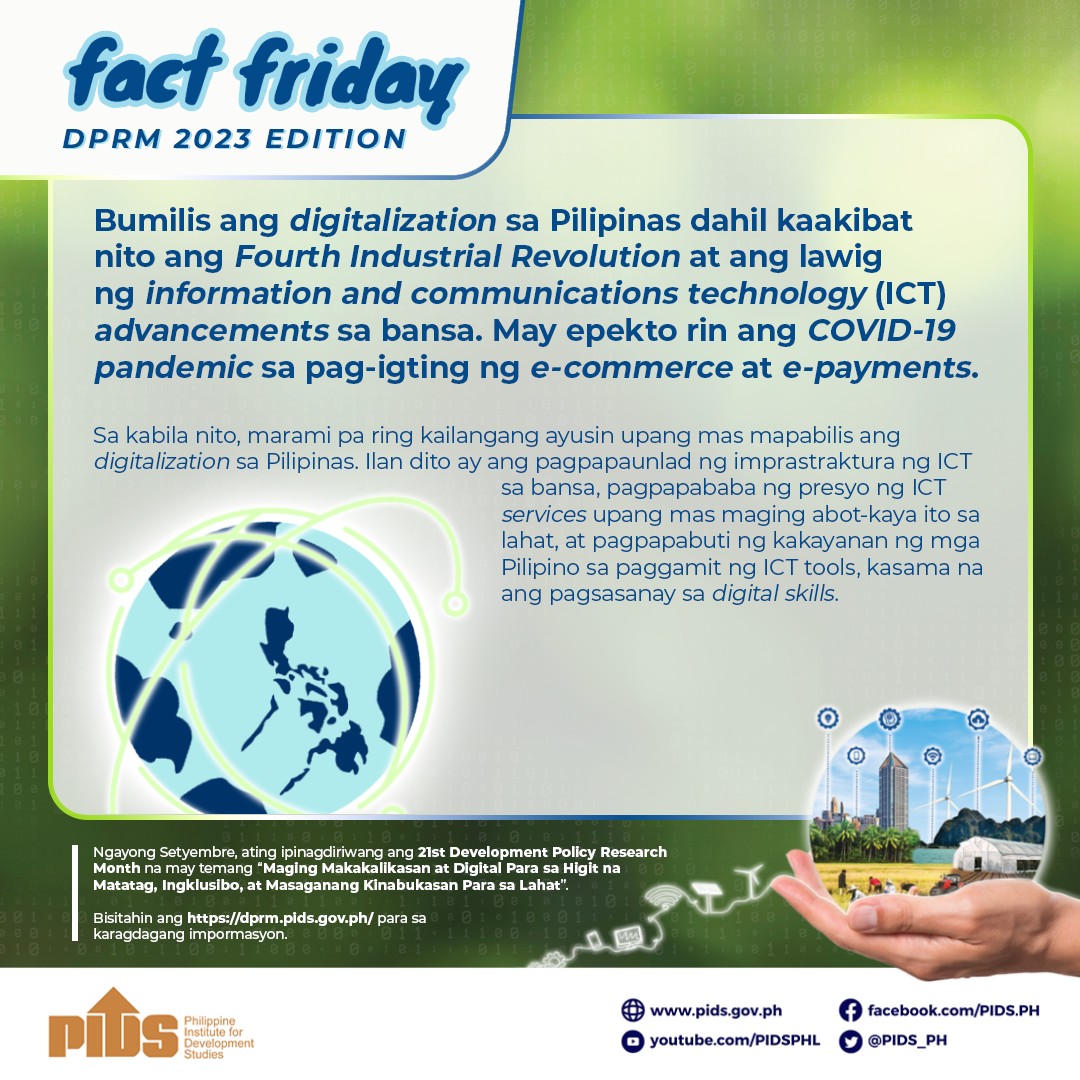The Philippine Competition Commission (PCC) must “investigate and prosecute” suspected violators of the country’s competition law, particularly in the Information and Communications Technology (ICT) sector, according to a study by the Philippine Institute for Development Studies (PIDS).
In a discussion paper, titled “Examining Trends in ICT Statistics: How Does the Philippines Fare in ICT?” PIDS senior research fellows Jose Ramon Albert and Ramonette B. Serafica and PIDS specialist Beverly T. Lumbera cautioned the country may encounter difficulties in reaping digital dividends if the PCC hesitates in probing and investigating such violations.
“The newly established Philippine Competition Commission will, likewise, need to develop the capacity to investigate and prosecute complex violations to competition law,” the authors said.
“Many cases in high-income countries can provide guidance to developing countries, like the Philippines, as we promote competitive environments that will further enhance and sustain economic activity,” they added.
The PCC was designed as a quasi-judicial body that shall be responsible for the implementation of a national competition policy pursuant to the legislation.
If the PCC can improve, at the least, Internet access in the Philippines, the authors said, the country can make a huge step toward a more inclusive society.
The authors added that the Internet can allow micro and small firms to directly connect with potential buyers abroad through the Internet and social media, or gain business partners.
The authors also said marginalized groups can also improve their access to social services through digital technologies.
“The PCC, given its quasijudicial powers, can serve to protect consumers in any particular sector, as it can conduct inquiries, investigate and penalize all forms of anticompetitive agreements, abuse of dominant position and anticompetitive mergers and acquisitions,” the authors said.
The authors said Internet penetration in the Philippines has increased to 39.7 percent in 2014, from only 2 percent in 2000. The rapid increase in the Internet started in 2010, when the country’s Internet penetration rate jumped to 25 percent, from only 9 percent in 2009.
However, Internet access in the Philippines only ranks fifth in the Asean. The country trailed behind Singapore, Brunei Darussalam, Malaysia and Vietnam.
The rapid increase in Internet access of Filipinos allowed millions to embrace social media. The study quoted data from We Are Social, which stated that social-media penetration rate in the country, was at 47 percent, with 48 million active social-media users as of January 2016.
The authors said the data from We Are Social also showed almost half, or 46 percent, of Internet users nationwide use the Internet daily.
About 30 percent use the Internet once a week; a sixth, or 16 percent, use the Internet at least once (but less than four times) every month; and a tenth, or 8 percent, use the Internet less than once a month.
In a discussion paper, titled “Examining Trends in ICT Statistics: How Does the Philippines Fare in ICT?” PIDS senior research fellows Jose Ramon Albert and Ramonette B. Serafica and PIDS specialist Beverly T. Lumbera cautioned the country may encounter difficulties in reaping digital dividends if the PCC hesitates in probing and investigating such violations.
“The newly established Philippine Competition Commission will, likewise, need to develop the capacity to investigate and prosecute complex violations to competition law,” the authors said.
“Many cases in high-income countries can provide guidance to developing countries, like the Philippines, as we promote competitive environments that will further enhance and sustain economic activity,” they added.
The PCC was designed as a quasi-judicial body that shall be responsible for the implementation of a national competition policy pursuant to the legislation.
If the PCC can improve, at the least, Internet access in the Philippines, the authors said, the country can make a huge step toward a more inclusive society.
The authors added that the Internet can allow micro and small firms to directly connect with potential buyers abroad through the Internet and social media, or gain business partners.
The authors also said marginalized groups can also improve their access to social services through digital technologies.
“The PCC, given its quasijudicial powers, can serve to protect consumers in any particular sector, as it can conduct inquiries, investigate and penalize all forms of anticompetitive agreements, abuse of dominant position and anticompetitive mergers and acquisitions,” the authors said.
The authors said Internet penetration in the Philippines has increased to 39.7 percent in 2014, from only 2 percent in 2000. The rapid increase in the Internet started in 2010, when the country’s Internet penetration rate jumped to 25 percent, from only 9 percent in 2009.
However, Internet access in the Philippines only ranks fifth in the Asean. The country trailed behind Singapore, Brunei Darussalam, Malaysia and Vietnam.
The rapid increase in Internet access of Filipinos allowed millions to embrace social media. The study quoted data from We Are Social, which stated that social-media penetration rate in the country, was at 47 percent, with 48 million active social-media users as of January 2016.
The authors said the data from We Are Social also showed almost half, or 46 percent, of Internet users nationwide use the Internet daily.
About 30 percent use the Internet once a week; a sixth, or 16 percent, use the Internet at least once (but less than four times) every month; and a tenth, or 8 percent, use the Internet less than once a month.












